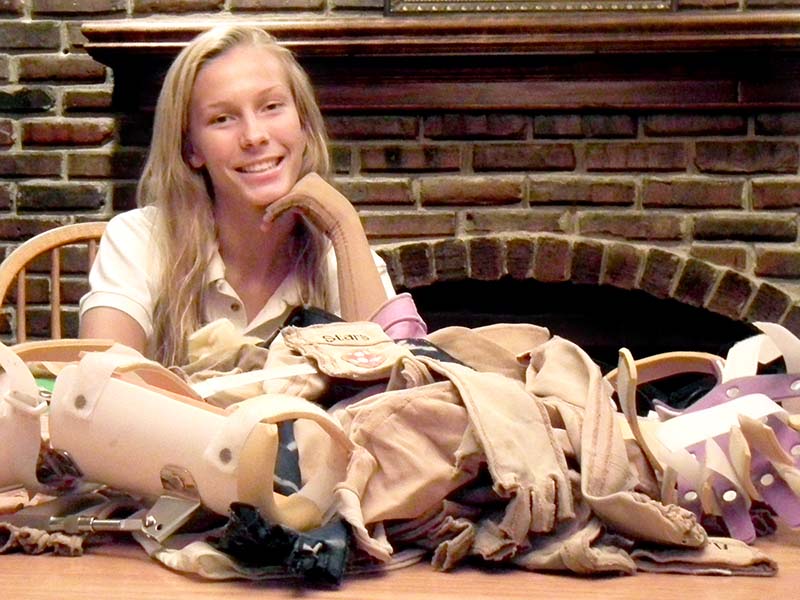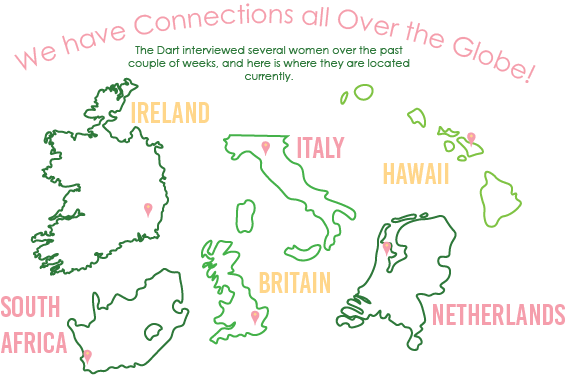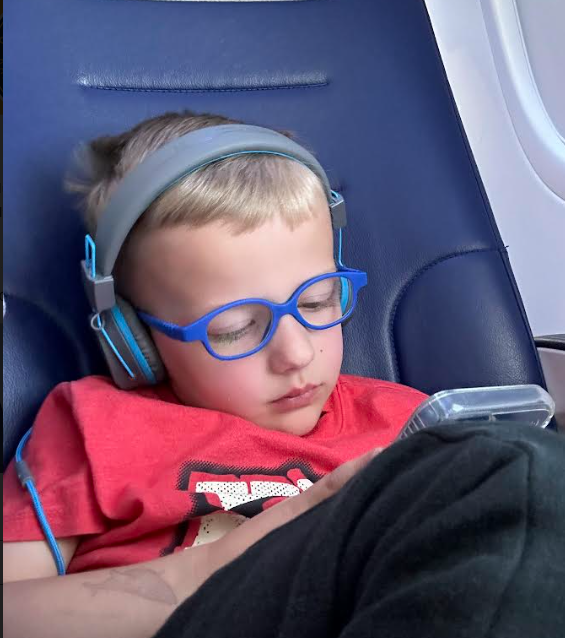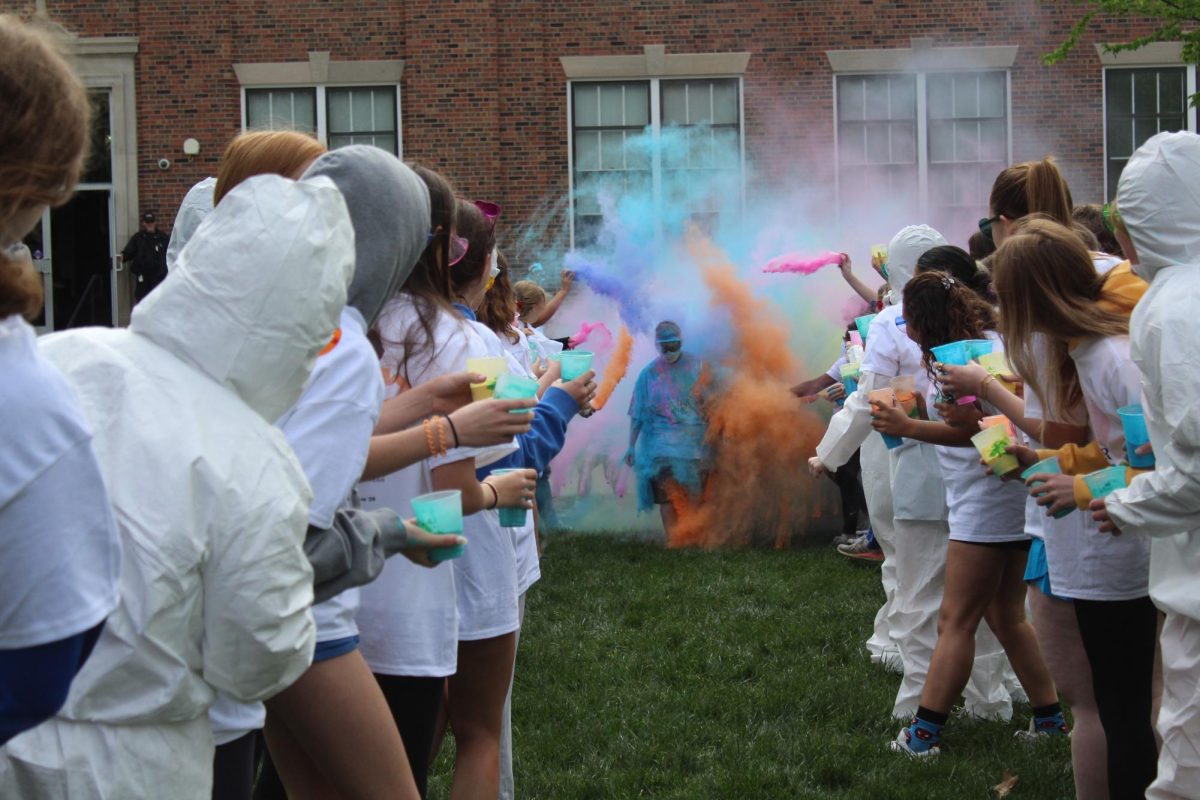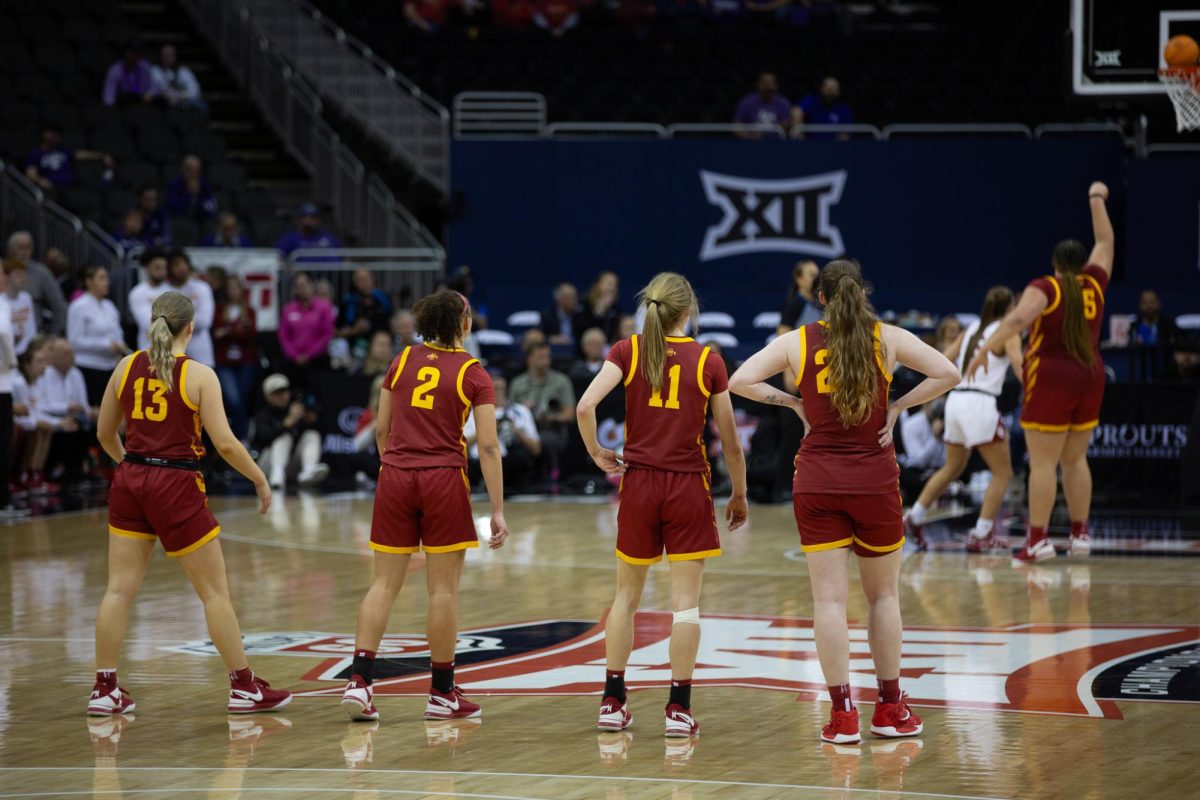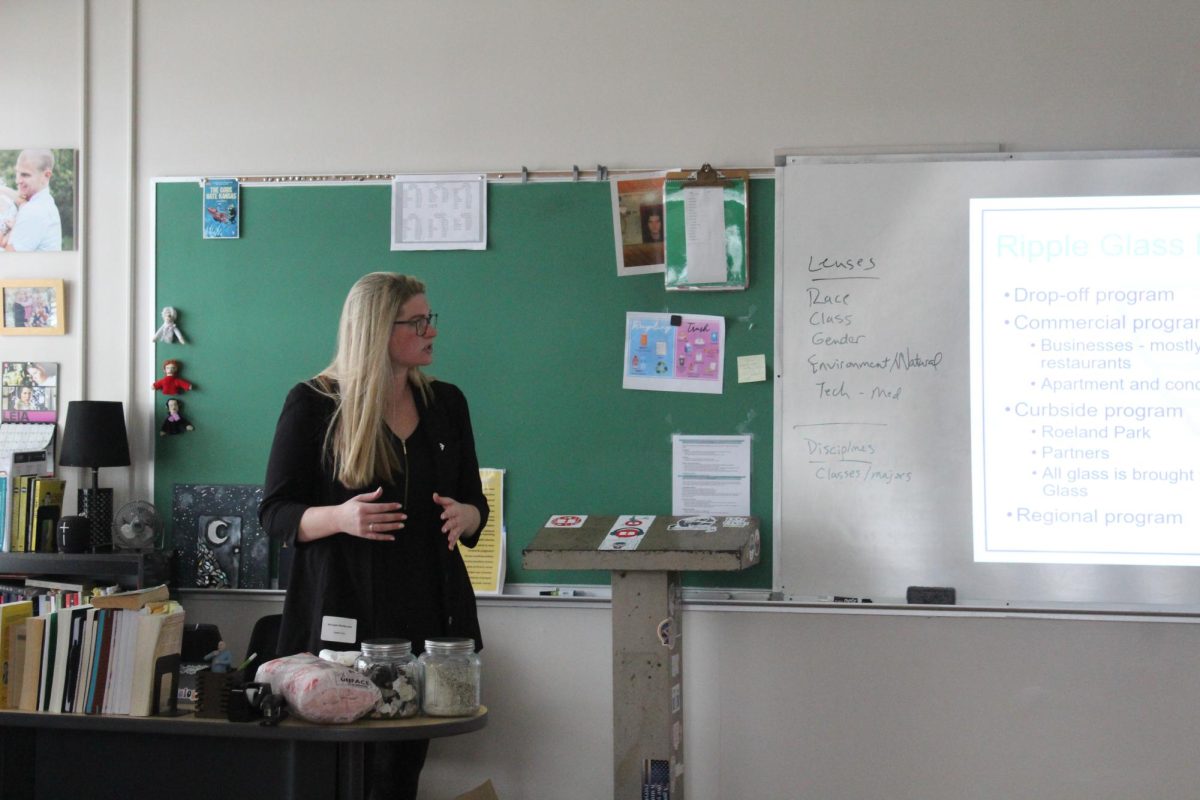by Katie Parkinson
photos by Caroline Fiss
Hemangioma. Fasciotomy. Compartment syndrome. Jobst garment. Sclerotherapy. Epidural.
Junior Mallory Radtke has grown up hearing terms like these. Words that many others have never even heard of, Radtke can define and then explain in-depth. Why? Because they are a part of her history and her life today.
In the Beginning
Radtke was born with vascular malformation, a rare condition that occurs in barely 1 percent of all births, according to the Vascular Disease Foundation. This means her left arm has extra veins which are tied up in knots. They can cause blood clots, grow into her bones and physically restrict her movements as well as bring pain.
When Radtke was a baby, doctors thought she had been born with a hemangioma, a patch of extra blood vessels that would go away by the time she was two. But a few weeks after her second birthday, her parents noticed it was not going away. That’s when the doctors discovered her condition, and the surgeries began.
“I used to get a surgery here in the United States every other month,” Radtke said. “It helped, but [my arm] is never going to be cured.”

The Radtke’s were told that the doctors in Kansas City were not equipped with technology for the surgery she would need. Treatment for her condition was very complicated, and they had never seen anything like it.
When Radtke was six, she and her family went to Boston, Mass. for her sclerotherapy treatment. They injected alcohol into her veins to try to kill off the bad ones and reconstruct them. The doctors predicted Radtke would only have to stay a few days in the hospital, plus recovery time, but something went wrong.“[Mallory] experienced a horrible complication known as a compartment syndrome,” Ms. Amy Radtke, Mallory’s mother said in an email.
Compartment syndrome is a painful condition that occurs when pressure within the muscles builds to dangerous levels, and the fascia, a tissue under the skin, stops swelling from moving outward.
“The swelling started going into my hand, like into my bones, and that can lead to amputations and things like that,” Mallory said.
To counter this, doctors gave her a fasciotomy, a process where they cut open the fascia in order to stop swelling. Mallory’s brief hospital stay turned into over two weeks long.
After that she went back to Boston for treatments once every two months, for two years. Each time was the same. She would have surgery, recovery time and then physical therapy.
Strength and Support
In fifth grade Mallory’s doctor moved to New York, and she had one last surgery there. After that she focused on just being a normal kid.
“Some of the harder times when I was in grade school were when my parents had to tell me, ‘Sorry, you can’t go out for the volleyball team,’ or ‘Sorry, you can’t play basketball,’” Mallory said. “Those were some of the things I really wanted to do but couldn’t because of my arm.”
Junior Lizzie Luallin, who has been friends with Mallory since they could walk, said that Mallory’s condition has not stopped her from living life.
“She just deals with the pain and doesn’t let it hold her back,” Luallin said.
Because of the blood clots, Mallory’s arm would swell, causing constant pain.
“I’ve had pain everyday for my entire life,” Mallory said. “How bad it is changes based on the day. I always tell people I’m used to it, and it’s not that big of a deal, but I don’t think people realize the kind of things you go through when you have pain everyday. Like during my sophomore year, [the pain] got so bad that sometimes in the mornings I would wake up and have to have my dad do my hair for me because my arm was in so much pain.”
To deal with this pain Mallory wears a special glove, called a Jobst Garment. Although originally used for burn victims, she uses it to keeps pressure on her arm to minimize swelling.
Off to India
In seventh grade Mallory and her family decided to try treatments again. Except this time, they would be going to New Delhi, India.
“When your child is in constant pain, you would give anything to take their pain away,” Amy said. “We will travel to the end of the earth if we have to.”
They found out about the treatments from family friend Edward Wachtmeister, who was in India in 2008 for similar treatments. Mallory’s grandfather accompanied Wachtmeister and took the opportunity to tell doctors about her condition.
“He asked us for my MRIs and all my information to send over there,” Mallory said. “Then [the doctors] looked at everything and said they thought they might be able to help.”
But not only were the treatments far away, they are not FDA approved, meaning the Food and Drug Administration cannot guarantee its success.
“Mallory’s pediatrician here is supportive of the treatment because he knows that the traditional treatment, like sclerotherapy, is very painful,” Amy said.
Leaving in October 2008, Mallory, her mom, dad, grandpa, his wife and Wachtmeister would be gone for five weeks.
“I think it was hard on her because she had to miss school for a month, and I think she missed her friends a lot,” Luallin said.
Luallin and other friends decided to get together to support Mallory before leaving on her first trip to India.
“It’s not really in my personality to go and tell the whole world, ‘Oh, I’m going to India in a few months for treatments,’” Mallory said. “So most of [my friends] didn’t know until a few weeks before, or even a few days before. When they found out they kidnapped me the night before and took me to IHop and gave me magazines and candy all this stuff to take with me.”
On the plane ride to India the next day, Mallory was most anxious about the multiple injections she would be getting everyday.
“I was deathly scared of needles,” Mallory said. “When I was a 6-year-old it literally took them seven doctors to hold me down because I didn’t want to have anything to do with [needles.] After that trip though, I am okay with shots because I’ve had them so often.”

The treatments in India improved the condition of Mallory’s arm.
“My arm could almost straighten the whole way,” Mallory said. “The treatments are supposed to be a continuous thing. You’re supposed to go every few years, and my parents didn’t know if the improvement was a fluke or what, so they wanted to go back, and this time if the treatments worked we would know that they really worked.”
India: Take Two
This July, Mallory and her mother left for India for the second time. They stayed in the hospital for three weeks, and everyday Mallory had morning injections, physical therapy for around three hours, and afternoon injections. Mallory also received two procedures along with her daily treatments.
“I had 12 injections each on those days, and they were in places like my spine and my armpit, things like that,” Mallory said. “I was freaking out about the spinal injection, which is called an epidural, because I kept imagining, ‘What if they paralyze me?’ and things like that.”
Sweet Success
The second round of treatments in India worked, and Mallory gained relief from the constant pain in her arm.
Mallory hopes the pain will stay so she does not need to return to India for more treatments.
“We feel lucky to have discovered something that provides Mallory some relief, even if it is on the other side of the world,” Amy said. “No parent wants to see their child in pain, [and] while we would never have wished this on Mallory, we are extremely proud of how well she has handled herself.”



